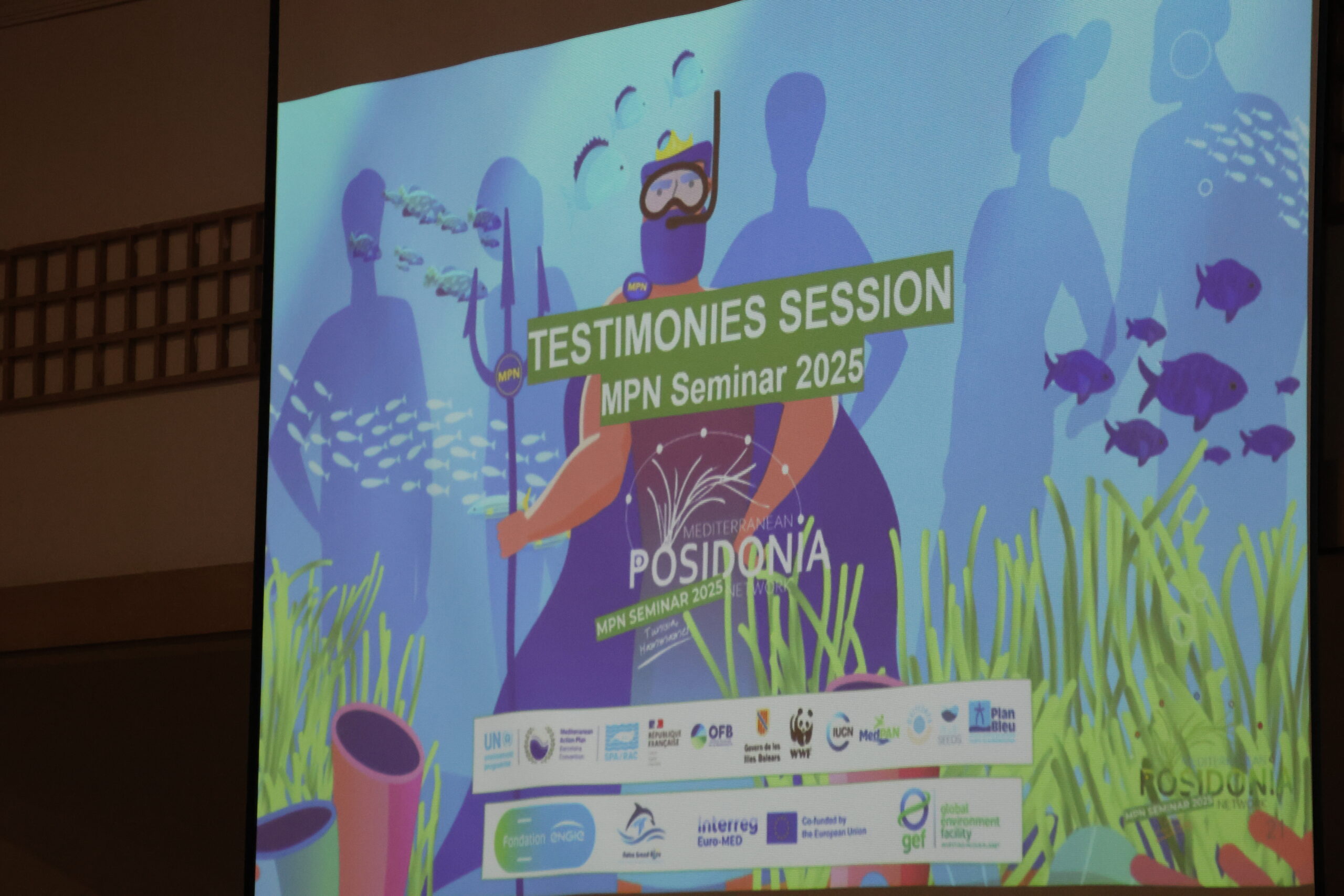
A Strategic Milestone for Posidonia Conservation in the Med
From May 5 to 9, 2025, the Mediterranean Posidonia Network (MPN) successfully held the 2025 edition of its flagship seminar at the IBEROSTAR Waves Averroes in Yasmine Hammamet, Tunisia. The event represented a major step forward for Mediterranean collaboration on Posidonia oceanica conservation, bringing together a wide range of stakeholders committed to protecting this key habitat for marine biodiversity and climate resilience.
Consolidating a shared Mediterranean roadmap
Established in 2020 and coordinated by a Task Force composed of the French Biodiversity Agency (OFB), MedPAN, IUCN, BlueSeeds, the Government of the Balearic Islands, WWF, Plan Bleu, and SPA/RAC, the MPN has the ambition to protect 100% of threatened Posidonia meadows by 2030.
This mission is guided by a Roadmap structured around seven strategic components: Knowledge and Observation, Innovation, Regulation, Stakeholder Engagement and Awareness, Capacity Building, Management Measures, and Networking and Governance.
For the second time since its creation, the MPN Seminar brought together nearly 100 participants from 15 Mediterranean countries including managers, scientists, NGOs, public authorities, and regional organizations. Through a full week of interactive workshops, strategic dialogues, and case study presentations, participants collectively refined and validated the updated MPN Roadmap, marking a milestone in cross-Mediterranean cooperation for seagrass protection.
Field immersion and local leadership
A key highlight of the event was a field visit to the Kuriat Islands, guided by the NGO Notre Grand Bleu (NGB). This visit offered participants the opportunity to witness the exceptional state of Posidonia meadows surrounding the islands and to learn from the dedicated conservation efforts that have made the Kuriats the first future marine protected area in Tunisia. The field experience underscored the importance of local engagement and community-driven management as essential components of regional conservation strategies.
A unifying platform across the Mediterranean basin
The Hammamet seminar also reaffirmed the MPN’s strategic role within the Interreg Euro-MED Natural Heritage Mission, as a partner of the Community4Nature (C4N) governance project. This partnership significantly enhances MPN’s capacity to connect and mobilize its diverse network of stakeholders across the entire Mediterranean basin, including both EU and non-EU countries.
By facilitating collaboration beyond political and institutional boundaries, the MPN acts as a unifying link for Posidonia oceanica conservation, promoting collective action for the health and resilience of the Mediterranean Sea.
Building momentum toward global agendas
The conclusions and outcomes of the Hammamet seminar have already informed MPN’s contributions to major international processes, like the third United Nations Ocean Conference (UNOC 3) and its special events held in Nice in June 2025. The MPN showcased its progress as a model of collaborative governance and presented its Roadmap and financial needs to make its ambition a reality – protecting 100% of threatened Posidonia meadows by 2030.
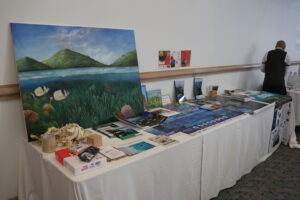
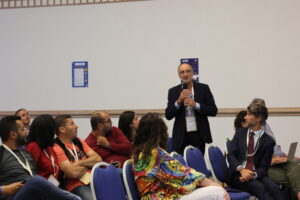
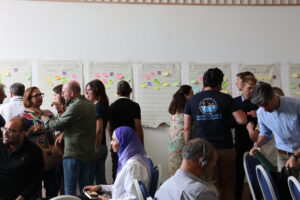
Looking ahead
Following the success of the 2025 seminar, the MPN is now focused on translating the updated Roadmap into operational actions at regional and national levels. By fostering knowledge exchange, supporting innovation, and reinforcing governance through partnerships such as the Natural Heritage Mission, the network continues to build the foundations for a healthy, resilient, and united Mediterranean Sea.
With insights gained from the Hammamet seminar and UNOC 3, the MPN is set to contribute to COP 24 of the Barcelona Convention in Cairo this December, continuing to advance regional cooperation for the protection of Posidonia.
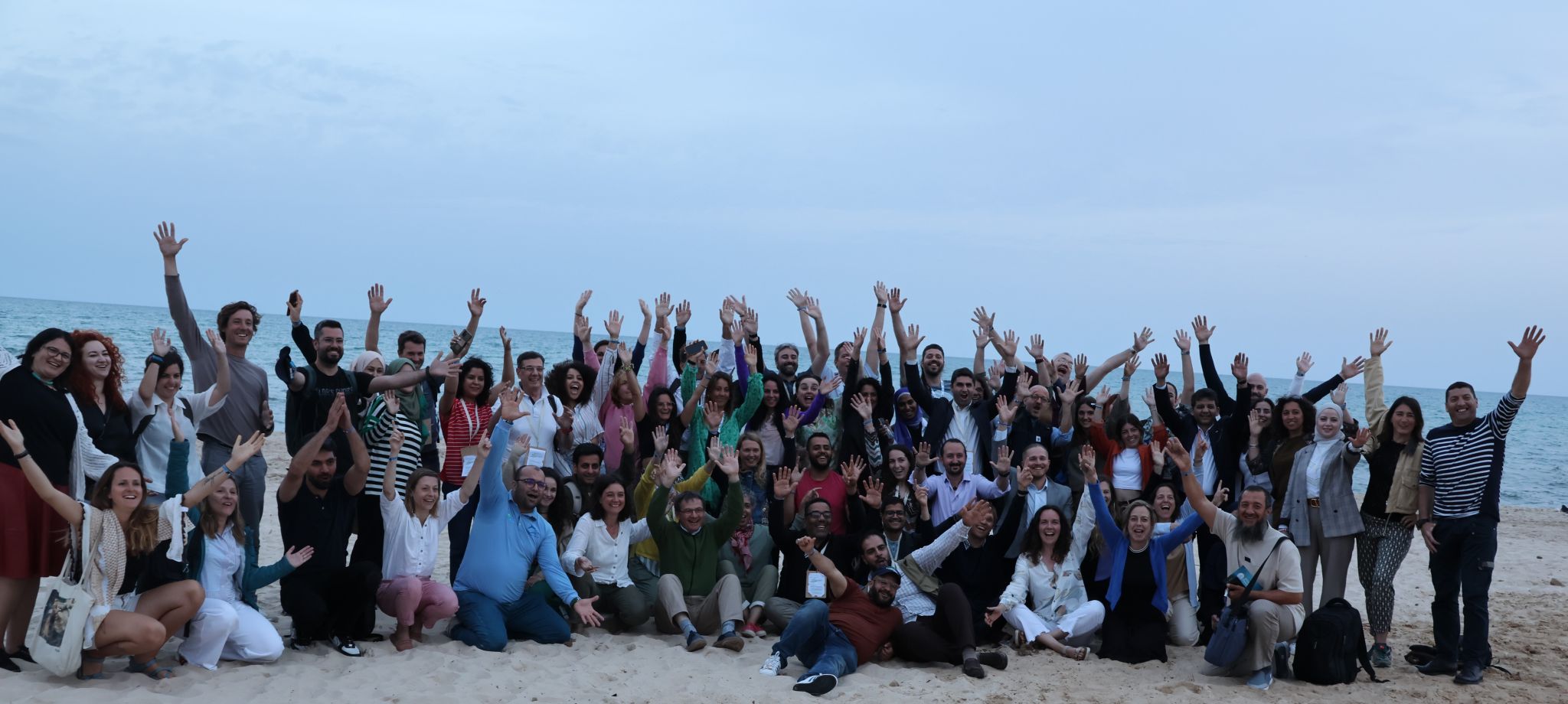
Contacts:
Frédéric Villers : frederic.villers@ofb.gouv.fr
Léane Chemineau : leane.chemineau@ofb.gouv.fr
Eva Sahores : eva.sahores@ofb.gouv.fr

